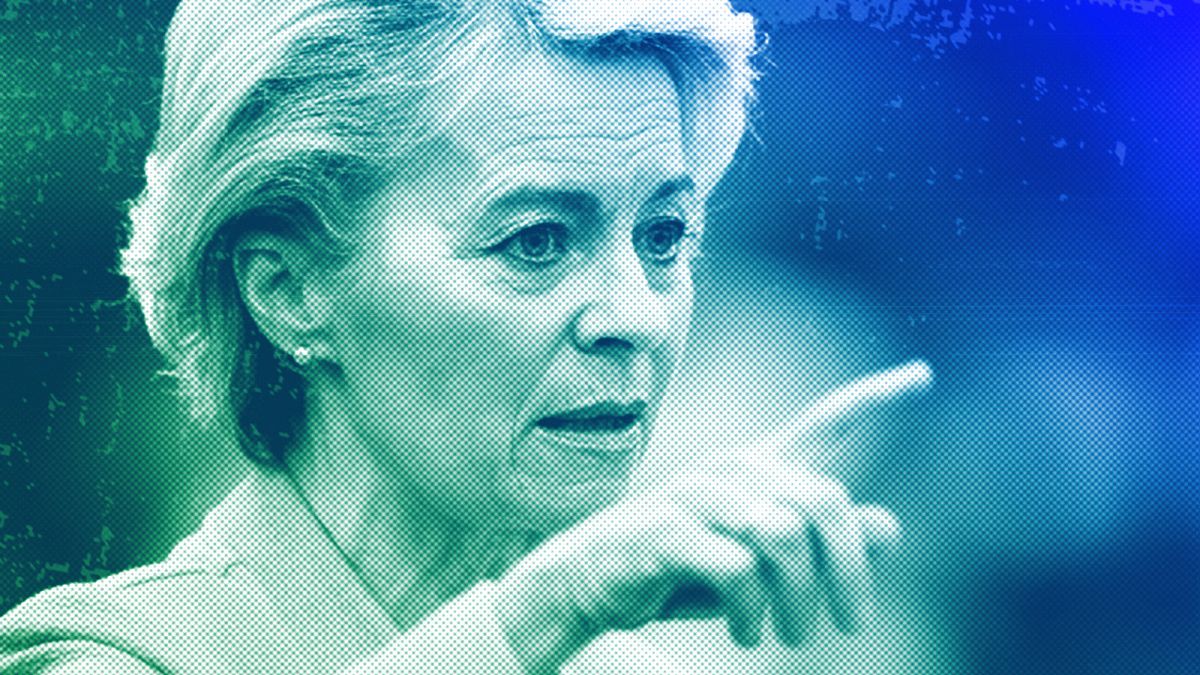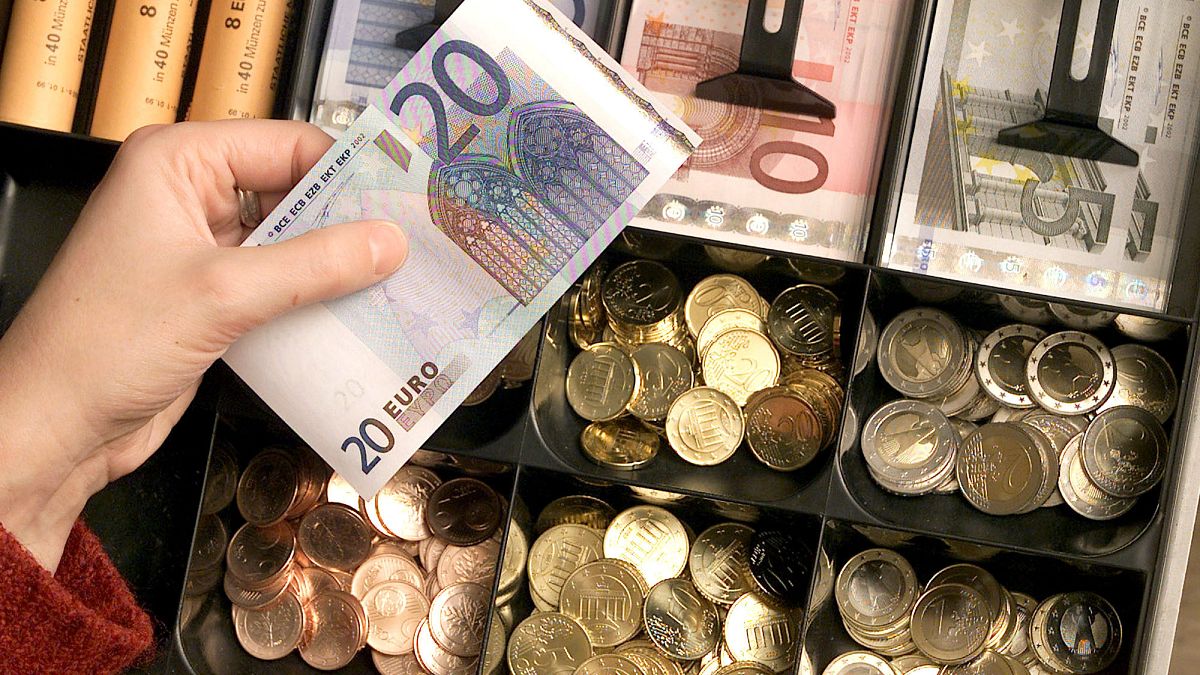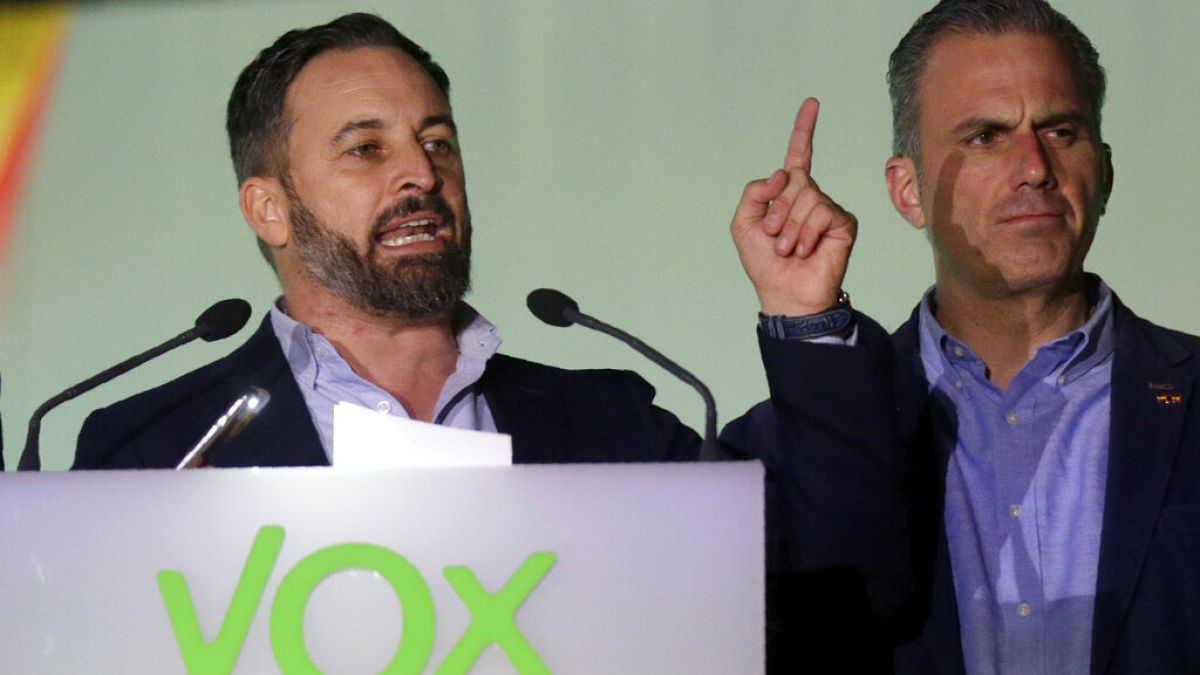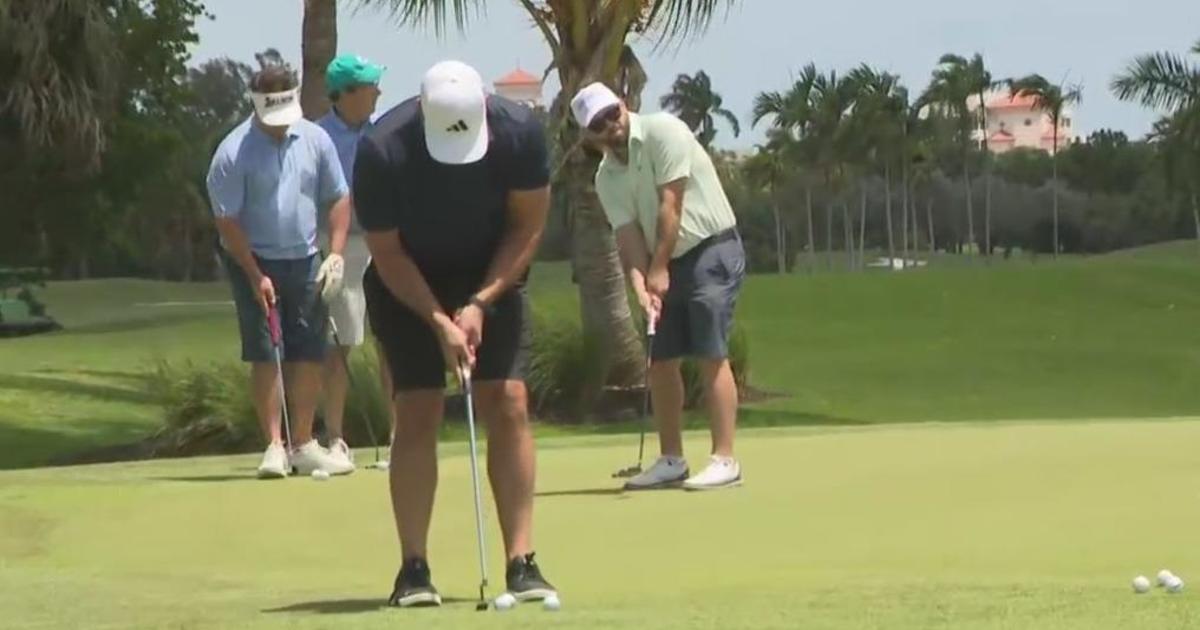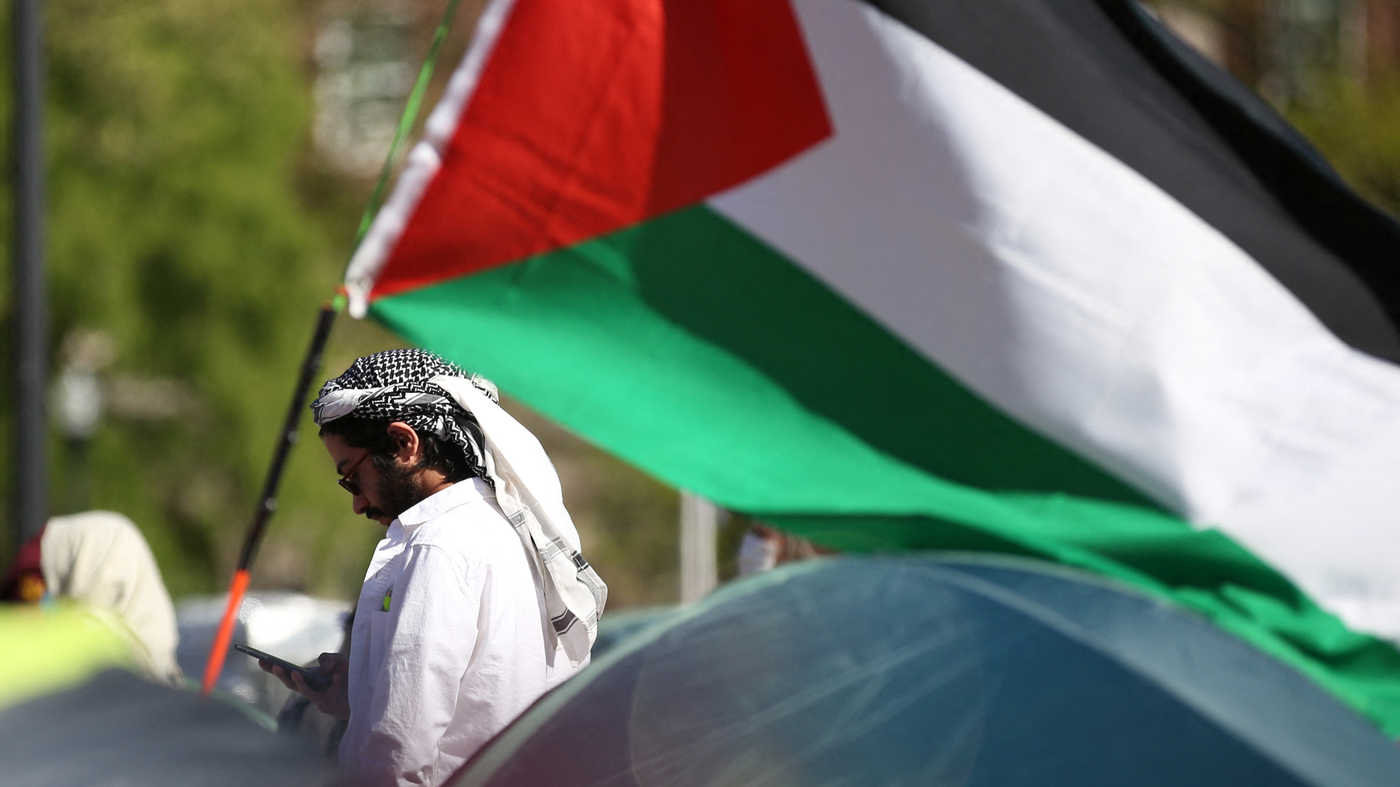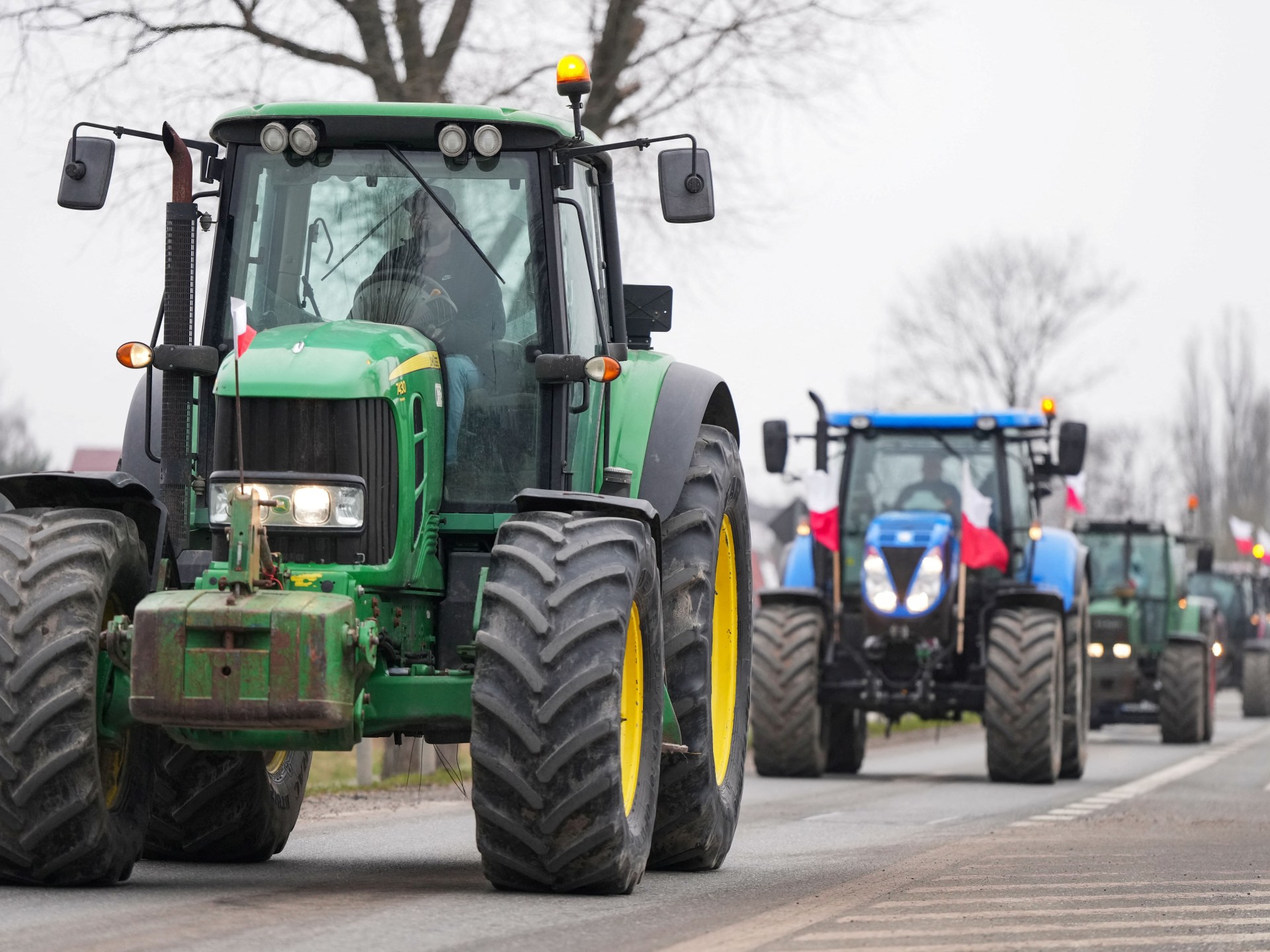World
Everything you need to know: Your guide to the 2024 European elections
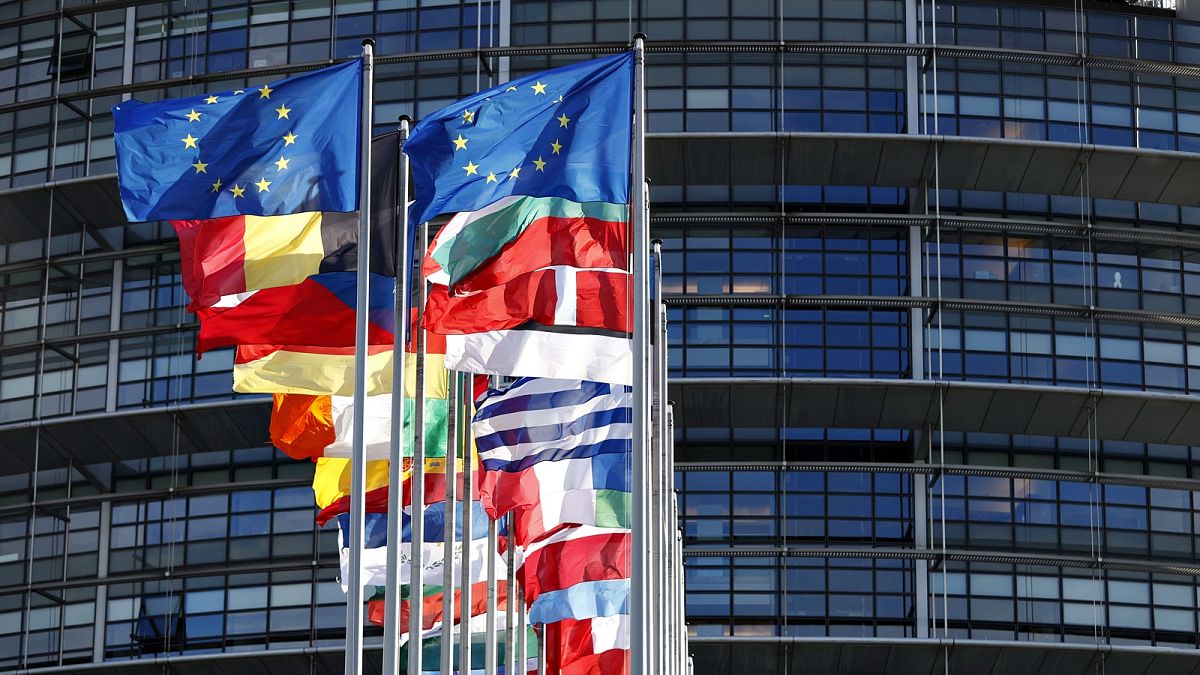
The European Union is in full campaign mode 100 days ahead of the parliamentary elections in June. Don’t worry if you don’t know exactly how they work. This guide from Euronews tells you everything you need to know.
The continent-wide elections will see 720 Members of the European Parliament elected. This is an increase from the current 705 seats to accommodate demographic changes in several member states.
The Parliament is the only institution in the EU that is directly elected by voters. The other two main bodies are indirectly elected: the composition of the European Commission requires the approval of MEPs while the Council is made up of national ministers designated by their respective governments.
The three institutions work hand in hand – not always amicably – to advance legislation in a wide field of areas, such as climate action, digital regulation, migration and asylum, the single market, environmental protection and the common budget.
Here is your deep dive into the 2024 elections.
When will the elections be held?
The elections to the European Parliament will take place between 6-9 June and will be organised according to the electoral rules of each member state. Voters will choose the representatives of their country in open, semi-open and closed lists. A push to introduce transnational lists did not gain traction.
The poll begins in the Netherlands on Thursday, 6 June, followed by Ireland on Friday, 7 June. Latvia, Malta and Slovakia will participate on Saturday, 8 June, while the remaining countries will cast their votes on 9 June, the big Sunday.
The Czech Republic and Italy will allow voting on back-to-back days: Friday and Saturday for the Czechs, and Saturday and Sunday for the Italians.
What’s the minimum age for voters?
Like election day, this also depends on your nationality.
In the majority of member states, the minimum age for voters is 18 years old. However, in recent years, a handful of countries have lowered the threshold in a bid to boost turnout. In Greece, people aged 17 or older are allowed to vote. And in Belgium, Germany, Malta and Austria, the cut-off age has been set at 16.
By contrast, the minimum age for candidates to the Parliament ranges from 18 years old, in countries like Germany, France and Spain, to 25 years old in Greece and Italy. All EU citizens have the right to stand for office in another EU country if they are residents there.
Does this mean more people will vote?
That’s one of the burning questions in Brussels. The EU elections have for decades been saddled with low participation rates. In 2019, the figure stood at 50.66%, the first time it surpassed the 50% threshold since 1994.
This year, the bloc hopes to, at least, reach again the 50% mark. In practice, this will mean 185 million ballots out of the estimated 370 million eligible voters.
The youth are considered a key demographic to increase turnout. This explains why EU officials have set their (overly ambitious) sights on Taylor Swift and other A-list celebrities to convince Gen Z and millennials to get out and vote.
Is voting mandatory?
Voting is mandatory in only four member states: Belgium, Bulgaria, Luxembourg and Greece. This provision is enforced with leniency and does not necessarily translate into higher numbers. In 2019, Greece posted a 58.69% turnout, and Bulgaria just 32.64%.
Still, voting is highly recommended to make your voice heard.
Can I vote from abroad?
As a general rule: yes, you can. But it changes from country to country.
All member states, except the Czech Republic, Germany, Ireland, Luxembourg, Malta, the Netherlands, Austria and Slovakia, allow their citizens to cast their votes in embassies and consulates abroad, a step that often requires pre-registration. (Bulgaria and Italy only enable this option within another EU country.)
At the same time, Belgium, Germany, Estonia, Spain, Latvia, Lithuania, Luxembourg, Hungary, the Netherlands, Austria, Slovenia, Finland and Sweden allow voters to send their ballots by post. In some cases, the mailing costs can be reimbursed.
Additionally, Belgium, France and the Netherlands authorise the use of proxies: a person who is unable to go to the polls can designate another person to vote on their behalf.
As of today, Estonia is the only EU nation that offers e-voting.
On the other hand, there is a minority of member states that have no option whatsoever to vote from abroad: the Czech Republic, Ireland, Malta and Slovakia.
For more information on how to vote, check the Parliament’s dedicated website.
When will we know the results?
The results of the elections will not be announced until Sunday evening. This prevents countries that vote earlier in the race from influencing the outcome of the latecomers.
The services of the European Parliament intend to publish the first partial estimations at 18:15 CET on Sunday and the first projection of the full hemicycle at 20:15 CET. This data will combine estimated votes and pre-election opinion polls.
By 23:00 CET, once all stations in all member states have closed, we will have a reliable, comprehensive look at the composition of the next European Parliament.
What happens after the elections?
Shortly after the elections are over, national authorities will communicate to the Parliament who has been elected (and who has been disqualified) so that the hemicycle can begin to constitute itself.
MEPs have to organise themselves into political groups according to their ideology and priorities. These groups have to include a minimum of 23 lawmakers from at least seven countries. Those who are left out will be considered “non-inscrits” (or “non-attached”) and will have less prominence in debates and committees.
The current hemicycle has seven groups: the European People’s Party (EPP), Socialists and Democrats (S&D), Renew Europe, the Greens/European Free Alliance, the European Conservatives and Reformists (ECR), Identity and Democracy (ID) and The Left.
The 10th legislature will start on 16 July, the date of the first plenary sitting. That day, the 720 MEPs will elect the Parliament’s president, 14 vice-presidents and five quaestors.
The first sitting will last until 19 July and will see the selection of committees and subcommittees. But the chairmanship positions, which the main groups traditionally divvy up in a game of horse-trading, will be announced in the days following the plenary.
What about the Spitzenkandidaten?
Back in 2014, the EU decided to try something new for a change: ahead of the parliamentary elections, each party was asked to publicly designate a lead candidate, or Spitzenkandidat in German, to preside over the European Commission, the bloc’s most powerful and influential institution.
This pre-selection, the thinking went, was meant to make the Commission more democratic and accountable in the eyes of European voters.
After the EPP won the elections with 221 seats, EU leaders respected the novel system and appointed Jean-Claude Juncker, the party’s lead candidate, as Commission president. The hemicycle then approved his bid with an absolute majority.
However, in 2019, things took a surprising turn: the EPP’s declared nominee, Manfred Weber, was unceremoniously pushed aside by EU leaders (most notably, France’s Emmanuel Macron). The rejection led to the surprising appearance of Ursula von der Leyen, who had been totally absent during the race.
Von der Leyen’s appointment, which survived the hemicycle by a razor-thin margin, prompted analysts and journalists to pronounce the Spitzenkandidaten dead.
The 2024 race comes with an attempt to revive the system: this year, von der Leyen will run as a lead candidate. The socialists, the Greens and the Left have also taken steps to put forward a presidential hopeful. But some other groups, like Renew Europe and ID, continue to shun the system, as it has no basis in the EU treaties.
Regardless of where the candidate comes from, the Parliament intends to hold a plenary session between 16 and 19 September to allow the appointee to make their political pitch and earn the endorsement of, at least, 361 of its 720 members.
If the Commission president is elected in that session, the Parliament will begin the hearings of Commissioner-designates according to their assigned portfolios. In 2019, three proposed names were rejected during the vetting process.
Once all Commissioner-designates have survived the hearings, which can stretch for hours and turn acrimonious, the Parliament will hold a vote of confidence on the entire College of Commissioners for a five-year mandate. Only then will the new Commission take office and the legislative work will kick start.

World
American Idol Remembers Mandisa: Watch Danny Gokey, Melinda Doolittle and Colton Dixon’s Emotional Tribute

ad
World
A Colombian army helicopter has crashed in a rural area of the country's north, killing 9 soldiers
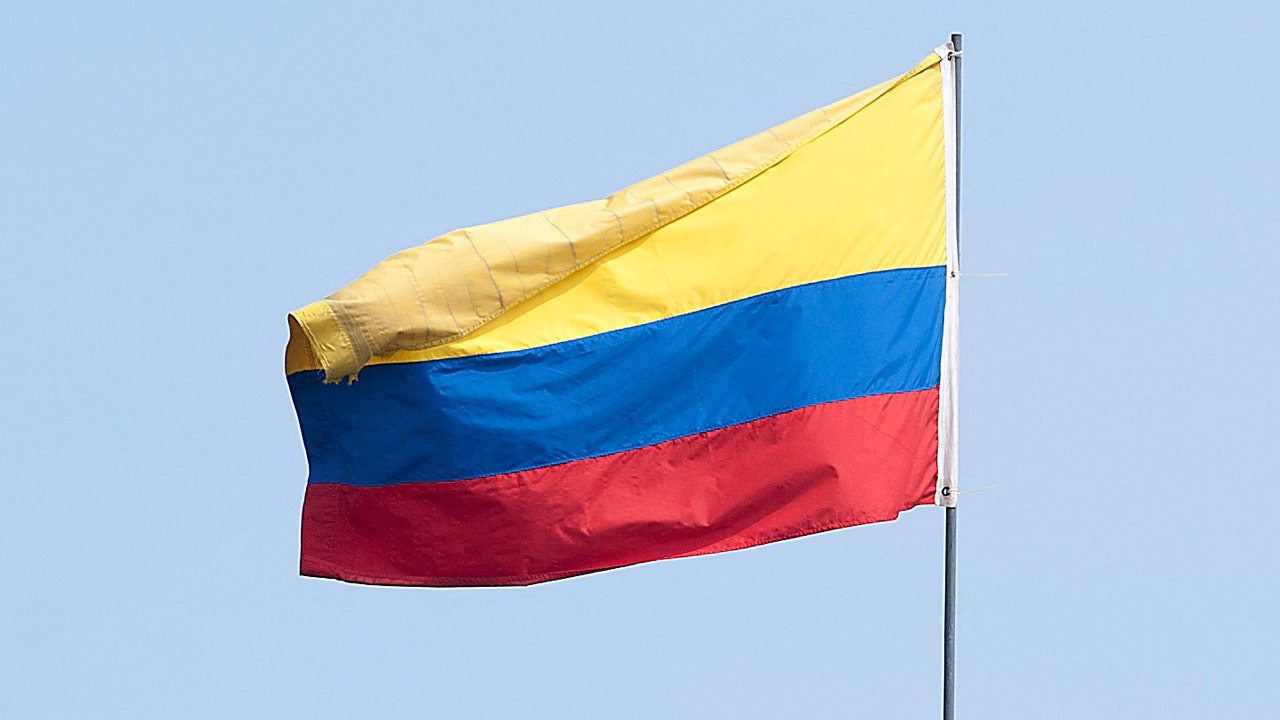
An army helicopter carrying supplies to troops crashed in a rural area in northern Colombia on Monday, killing nine soldiers on board, the country’s armed forces said.
In a statement, the Colombian military said the helicopter was taking the supplies to the municipality of Santa Rosa del Sur, an area that has recently experienced fighting between the National Liberation Army guerrilla group and the drug trafficking group known as the Gulf Clan.
TENS OF THOUSANDS OF COLOMBIANS PROTEST AGAINST LEFTIST PRESIDENT’S AGENDA
The military statement described the helicopter crash as an accident.
Nine members of Colombia’s military lost their lives when their helicopter crashed in a rural area of northern Colombia. (Photo by LUIS ROBAYO/AFP via Getty Images)
“I regret the death of the nine passengers on board the army’s helicopter” Colombian president Gustavo Petro wrote on X on Monday. “It was supplying troops…that were conducting operations against the Gulf Clan.”
The military said the helicopter crashed around 1:50 pm local time. It was an MI-17 Russian-built chopper that is often used to carry troops and supplies.
Two officers were among the victims of the crash, which also included two sergeants and three privates. None of the passengers on the helicopter survived.
World
Strack-Zimmermann blasts von der Leyen's defence policy

Marie-Agnes Strack-Zimmermann, one of the lead candidates in the European elections, has issued a blistering verdict of Ursula von der Leyen’s first term in office.
Strack-Zimmermann, who hails from the Alliance of Liberals and Democrats for Europe (ALDE), is part of a three-candidate team representing the liberal forces in the bloc-wide poll between 6 and 9 June. Currently a member of the Bundestag, where she chairs the Defence Committee, she is vying for a seat in the European Parliament.
In a wide-ranging interview with Euronews, the contender denounced the policies of Ursula von der Leyen, the sitting president of the European Commission, in the fields of defence, economy and fundamental rights. Von der Leyen is running for a second mandate and is widely considered the frontrunner.
“I’m absolutely disappointed,” Strack-Zimmermann said on Monday, speaking in Maastricht hours before a debate with all lead candidates.
The liberal assailed the incumbent for taking too long to put defence at the very top of the EU agenda, only doing so, she said, after Russian troops broke through the borders of Ukraine and unleashed the largest armed conflict in the continent since World War II.
The wait, she added, was particularly striking considering von der Leyen had previously served as defence minister under the government of Chancellor Angela Merkel.
“I have no idea why she didn’t talk about military security when she started to be the president of the Commission because she knows the topic, she has an idea of what happened,” she said, referring to the 2014 annexation of Crimea.
“I was surprised that didn’t say: ‘Come on, we have to do more in Europe,’ because she has the experience.”
When Russia’s invasion began in February 2022, von der Leyen’s executive was still dealing with the shockwaves sent by the COVID-19 pandemic and the roll-out of the recovery fund, built up by record-breaking amounts of joint borrowing and beefed up with stringent spending conditions to accelerate the green and digital transitions.
But in Strack-Zimmermann’s view, this does not cut it as an excuse for procrastination.
“I know the pandemic situation was terrible for everybody. But even then, you could see what (was happening) in Russia. And it was not this or that, it was both. I think if you are the head of the Commission, there is not one (single) topic,” she told Euronews.
“It’s not a very sexy topic talking about weapons, talking about war. It sounds nicer if you are talking about the Green Deal, it’s a softer topic.”
The failure to provide 1 million rounds of artillery shells by March 2024, as the bloc famously promised to Kyiv, underlines the overall fiasco, she added. “It’s a question of time. It’s a question (of) if you say we will deliver it, we have to do it.”
On the economic front, the contender warned environmental policies and excessive bureaucracy put a damper on growth, scared entrepreneurs away and killed “every moment to have ideas to stay in Europe as a company.”
Regarding the protection of fundamental rights, Strack-Zimmermann said it was “unbelievable” that the Commission had unfrozen €10.2 billion in cohesion funds for Hungary one day before a crucial summit that Viktor Orbán had threatened to blow up.
Brussels argued the release was inevitable after Budapest approved a reform to address long-standing concerns about judicial independence. But the overhaul was deemed insufficient by the European Parliament, which filed a lawsuit against the Commission.
“Everybody was very irritated,” Strack-Zimmermann said. “She’s responsible for it. And you could see that the Parliament is not amused about this situation.”
Despite her harsh assessment, the liberal admitted that being a Commission president was a “hard job.”
This interview is part of an ongoing series with all the Spitzenkandidaten. The full interview with Strack-Zimmermann will air on Euronews over the weekend.
-

 World1 week ago
World1 week agoShipping firms plead for UN help amid escalating Middle East conflict
-

 Politics1 week ago
Politics1 week agoICE chief says this foreign adversary isn’t taking back its illegal immigrants
-

 Politics1 week ago
Politics1 week ago'Nothing more backwards' than US funding Ukraine border security but not our own, conservatives say
-

 News1 week ago
News1 week agoThe San Francisco Zoo will receive a pair of pandas from China
-

 World1 week ago
World1 week agoBrussels, my love? The EU single market is not sexy enough for voters
-

 World1 week ago
World1 week agoEU sanctions extremist Israeli settlers over violence in the West Bank
-

 Education1 week ago
Education1 week agoVideo: Dozens of Yale Students Arrested as Campus Protests Spread
-

 Politics1 week ago
Politics1 week agoDemocrats hold major 2024 advantage as House Republicans face further chaos, division

